The Canadian summer is very unlike the English summer: not gentle but brazen. When I opted for Canada as my destination after graduating with the degree of Doctor of Philosophy from Merton College, Oxford, I was blithely unaware that the winters in this country can stretch for six months, and the mercury can drop to minus double digits. So, when at long last the summer months arrive, and the heaped-up snow finally melts away on the city streets of Toronto, the warm spring sunshine is most welcome. Except that spring lasts for about two weeks and quickly yields to burning days of intense heat and harsh light on concrete.

Workers on a high-rise concrete platform during the heat of Toronto’s summer months. Image courtesy of the Canadian Broadcasting Corporation.
As a result of my multifarious and arguably ill-conceived attempts to decolonize my organic chemistry course, I had drawn ire in the spring of 2024 for “trolling” my colleagues with what some characterized as a ludicrous new syllabus that included — among a string of other choice segments — one with the rubric “Disrupting binary categories; organic chemistry and performative gender framing: notions of conjugation in aromaticity and enone synthesis; cis versus trans in epoxidation of alkenes and esterification; metals in transition and oxidative insertion.” You can make of that what you will.
There had been pushback. To be candid, not as much as I was expecting, but pushback nonetheless; and it had prompted a rebuttal from me by means of a sidewinder missile I had launched: a blistering counterattack in the shape of a workplace grievance. After all, I was not about to be labelled a “troll” when we live in a postmodern campus climate where power is imbued in language, and the violent impact of words is felt with all the potency of bullets discharged from a Kalashnikov by those who are reputedly marginalized because of their self-identified race, gender, or sexuality.
Enjoy independent, ad-free journalism - delivered to your inbox each week
It was, as it transpired, a casual backhander from a white middle-aged heterosexual male. Here was a man who had foolishly chosen to toss out terms for which he has no appreciation in what many of my keen-eyed social science colleagues would describe as a predictable display of “European colonialist hegemony”. My visceral reaction — the workplace grievance — was merely an act of self-defense, of resistance to oppression, but some on the opposing team would undoubtedly describe it as a form of academic terrorism.
Now, thankfully I don’t have a great deal in common with the late Mohammed Emwazi, otherwise nicknamed “Jihadi John”, except the curious coincidence that my external examiner for my doctoral degree at Oxford, Pamela Greenwell, was — even back in 1996 — faculty at the University of Westminster, the institution where Emwazi allegedly earned a second-class degree in Information Systems and Business Management in 2009.
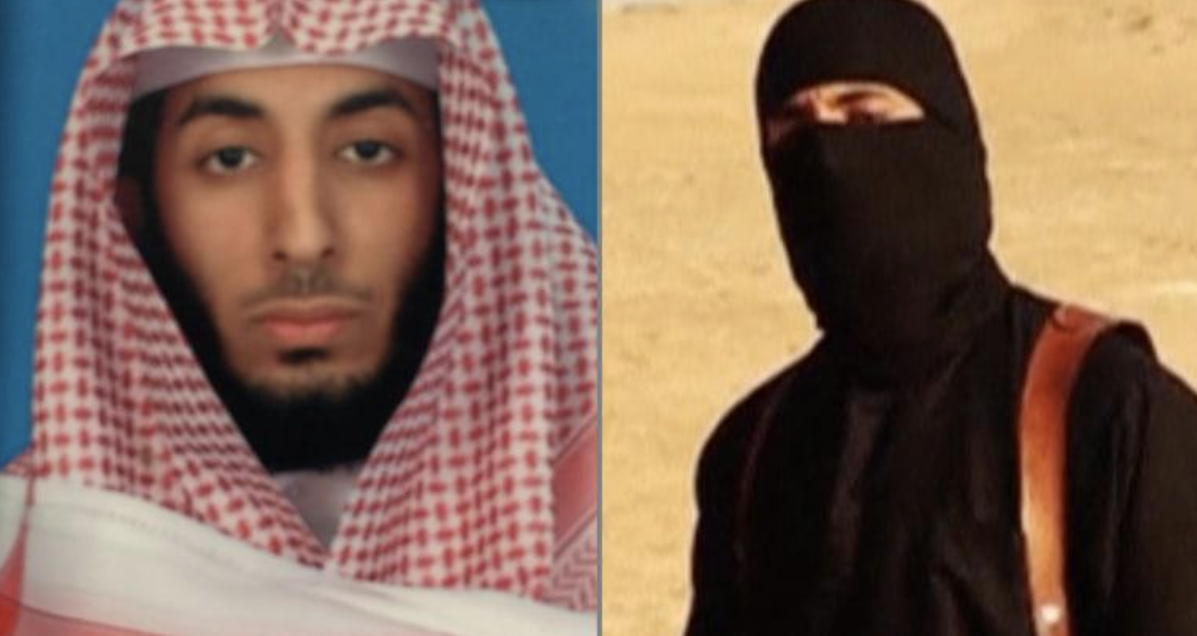
Mohammed Emwazi, pictured left, in 2010 in Kuwait, and, right, in a mask where he appeared with aid worker David Haines, who was beheaded by the Islamic State of Iraq and the Levant (ISIL) in September 2014. SITE Intelligence Group via AP.
But, certainly, the appeal of beheadings is a parallel. Jihadi John opted for the real variety and, lest we forget, was responsible for the sickening and brutal murders of five hapless Western hostages. My rendition is altogether metaphorical, and an entirely bloodless one, seeking rather to chop off at the neck the monstrous and incorporeal entities that now roam the corridors of academic power disguised under the mantle of critical social justice activism.
For a chemist like me, this newfound desire to emulate England’s patron saint, St. George, and decapitate dragons emerged — try not to laugh — organically. My attempt to launch a course entitled, Organic Chemistry: A Decolonised Approach, was merely the culmination of a sequence of good-faith efforts to explore just what had become of the formerly brilliant minds on my university campus. Like all good scientists, I had resolved much earlier to test the academic waters and garner empirical evidence and establish my positionality.
Help Ensure our Survival
The previous year, with no small amount of encouragement from no less than two different deans, I had shed the considerable administrative portfolio associated with my directorship of the Master of Biotechnology program — a burden that my successor, Cynthia Goh, whose physical attributes doubtless rendered her a far more suitable incumbent, found insupportable after twelve short months and promptly quit the role. Predictably, the position was handed back to my predecessor, Scott Prosser, who knew all too well the magnitude and thanklessness of the director’s job in a professional graduate program that in recent times has been stuffed full of shockingly self-entitled Gen Z ingenues.
In the post-cancellation lull that stretched into the autumn, I had spent considerable time and effort looking further afield for educational opportunities provided by my employer — the University of Toronto — ones that that would permit me to ingratiate myself into the broader scholarly community and catch a glimpse of the vogueish notions that were being disseminated.
Then, in September of 2023, a departmental email advertising an offering entitled “Introduction to Anti-Racist Pedagogies Learning Series” facilitated by the Robert Gillespie Academic Skills Centre drew my immediate attention. I signed up. Applying late, I inevitably missed the first session, but I wrote with effusive apologies and warmed to the prospect of the second instalment in the series, a round-table discussion with the promising title “Implementing Anti-Racist Pedagogies”.
I had, like any good academic worthy of the name, backfilled a newly commissioned corner of my mind with the content of that missed session by asking for the material and scanning through the rubric and recommended readings. Scrolling to the bibliography the signs were unmistakable. One citation was by A.M. Blakeney from 2011 with the bemusing title “The skin we’re in: a year of Black resistance and power.”
Now, at that point I didn’t profess to know a great deal about the cognoscenti in the field and the widely accepted theories of critical social justice, but felt certain I was about to find out.
When the second event came around on 17 October 2023, just ten days after the dramatic and world-changing events taking place in Israel, I was genuinely curious to find out how things would play out. Hosting the panel discussion was one Corrine Bent-Womack, UTM’s Education Developer, Anti-Racist Pedagogies. The panel itself comprised Sheila Batacharya, Sherry Fukuzawa, Rosa Hong, and Praneeta Mudaliar. Limiting myself to observations of fact, that would be five women, then. Not a male in sight, seemingly, but that’s fine. I didn’t have a problem with that; at least, not until they opened their mouths.
A cursory inspection of our panelists’ curriculum vitae indicates they are relative ingenues in the rarefied sphere of university life. Three assistant professors — referring to their pre-tenure status, the lowest rank in the academic hierarchy — one associate professor, and one unionized bureaucrat. The disciplines represented were Geography, Language Studies, Anthropology, and one appointee to what my university calls the Institute for the Study of University Pedagogy (ISUP).
None of these are sciences, not in the true empirical sense. Once, I sat in on an anthropology lecture delivered by a wannabe teaching stream lecturer; and the caliber of the scientific thinking was, to put it charitably, problematic. Amusingly, it was Sherry Fukuzawa, now sitting in front of me on the panel, who had been the successful candidate on that search.
As the audience members settled into post-luncheon slouching, doing their best to relax into the uncomfortable office chairs that are a mainstay of every university department, we all awaited with — depending upon your political persuasion — progressive echo-chamber anticipation or dubious rationalist cynicism for the proceedings to begin.
I can’t say I was disappointed. In fact, it was a wake-up call to the realities on our campuses, as the four professors arrayed before us proceeded to articulate with unanimity the importance of what I can only characterize as discriminatory practices in their classrooms, practices that that sought to diminish the diligence and commitment of a majority of students in favor of those who self-identify into groups that claim marginalization and oppression.
In essence, instructors of courses were being encouraged to correct for an immeasurable mountain of accumulated historical injustices, such as the seemingly never-to-be-forgiven affrontery of North American slavery, by attempting to soften and lower standards — standards these professors would assert have been conjured into existence by so many dead white patriarchs.
As we closed out and moved into the Q&A phase, the panel concluded with a round of backslapping as they all gleefully acknowledged there to be “no such thing as the truth”. This is difficult for a scientist; or for that matter, anyone barely rational. Unable to resist addressing this circular paradox — the truth presumably is non-existent except for that singular claim — I promptly elbowed into the discussion with an objection. Careful to adopt the correct tenor and wording, I pointed out that “speaking as a scientist”, I found that claim to be “troubling”. I’d like to see these know-nothings explaining their denial of objective reality to the families of Jihadi John’s victims.
As we closed out and moved into the Q&A phase, the panel concluded with a round of backslapping as they all gleefully acknowledged there to be “no such thing as the truth”. This is difficult for a scientist; or for that matter, anyone barely rational. Unable to resist addressing this circular paradox — the truth presumably is non-existent except for that singular claim — I promptly elbowed into the discussion with an objection. Careful to adopt the correct tenor and wording, I pointed out that “speaking as a scientist”, I found that claim to be “troubling”. I’d like to see these know-nothings explaining their denial of objective reality to the families of Jihadi John’s victims.
I also railed against Batacharya’s attempt to saddle me with historical guilt by asserting that the British executed genocide of Native Americans by seeding blankets with smallpox. Should she in turn feel guilty for the atrocities committed by the Nawabs in Bengal?
In the wake of my objections, the panel collectively took exception, and soon counter arguments were flying thick and fast. In defense of scientific truths, I drew attention to us all being seated on the second floor of a modern building of glass, concrete, and steel, and then invited our hosts to imagine the outcome of dropping an object with mass — I didn’t say person — from the balcony just outside the broad floor-to-ceiling windows behind them, overlooking the fall-tinged campus. You could hear a pin drop. Within minutes, people began muttering excuses and were soon pushing back their chairs and heading for the door. The mediator declared the session was over.
In defense of scientific truths, I drew attention to us all being seated on the second floor of a modern building of glass, concrete, and steel, and then invited our hosts to imagine the outcome of dropping an object with mass — I didn’t say person — from the balcony just outside the broad floor-to-ceiling windows behind them, overlooking the fall-tinged campus. You could hear a pin drop. Within minutes, people began muttering excuses and were soon pushing back their chairs and heading for the door. The mediator declared the session was over.
The day after the event, I penned a letter of complaint to the University of Toronto Faculty Association (UTFA) describing in some detail how it all went down.
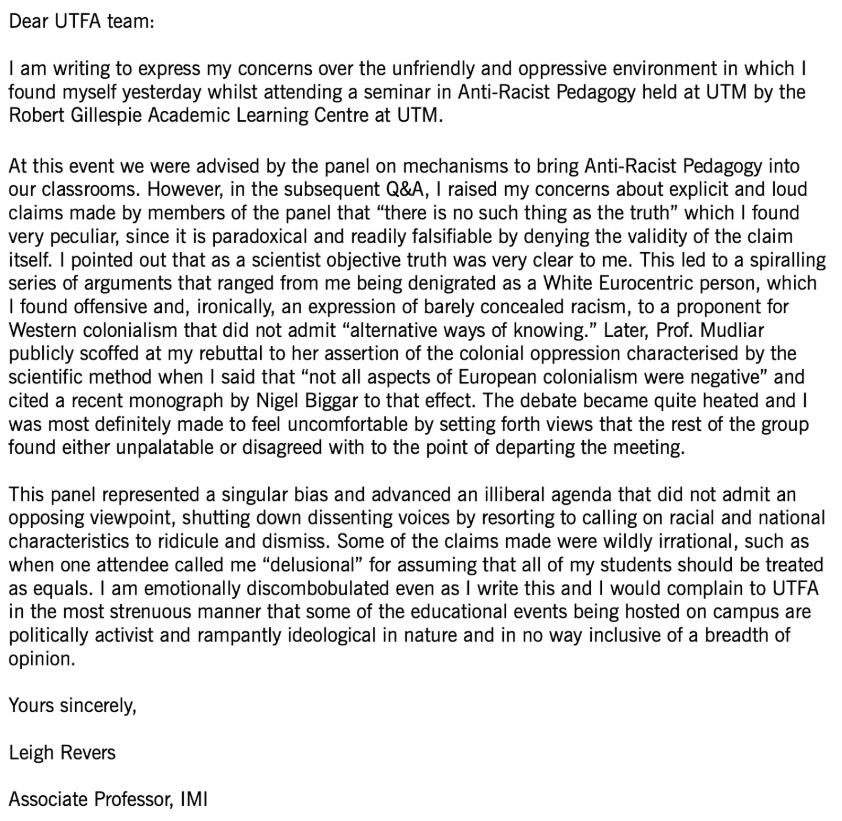
Eight days later, on 26th October, I received an email from the Acting Director of ISUP, Tyler Evans-Tokaryk, requested a meeting with me. His reference in the communiqué to “some people” was clearly not a relation to my own concerns raised to UTFA. He also got the date wrong.
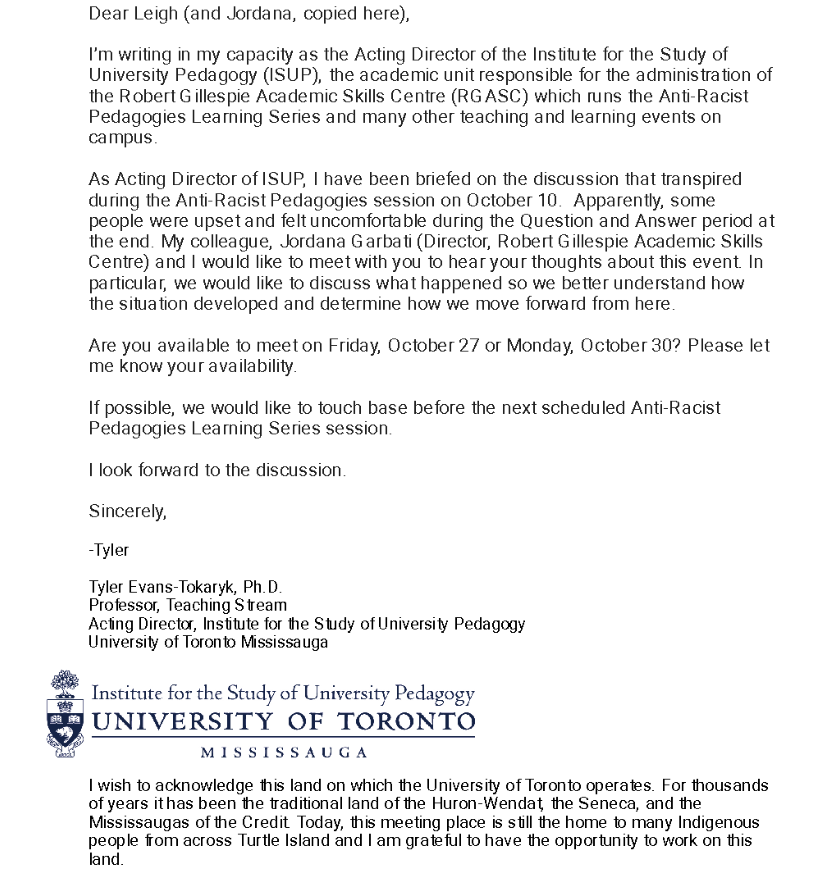
I quickly agreed to the meeting, knowing that this might be interesting in any number of ways, and knowing full well that academics never operate alone when it comes to contentious exchanges in someone’s office. Should I leave the door open, I wondered? This would be a two-against-one cow-shed struggle session, I was in little doubt.
In the end, I recorded the meeting, mainly as an act of self-defense. However, what might have been an adversarial confrontation soon became an unbroken monologue on my part as I sketched the circumstances of the debacle and presented my case. Evans-Tokaryk was in notably jovial mood, every so often chirping this or that empathetic remark, and there were approving nods from both of my interlocutors. After about half an hour — though it seemed far longer — they left, seemingly satisfied with my responses. On this occasion, I appeared to have gotten my message across, my logic — at least on first pass — silencing the concerns and diffusing the prospect of causing an even bigger stink. When asked about my attending the remaining two sessions in the series, I wrote back with circumspection.
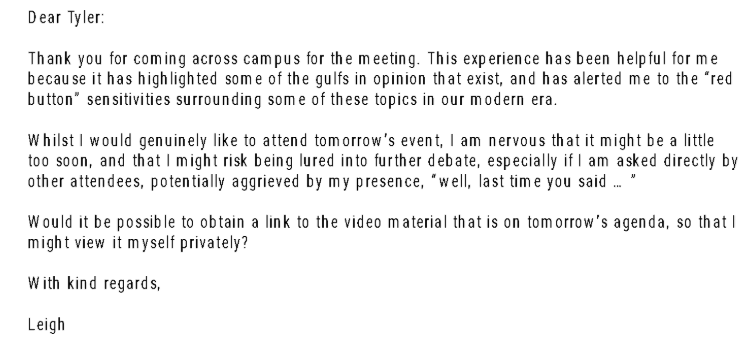
I was denied access to the video content for the third session on the spurious grounds that “[it was] designed to be an in-person session”, but the subsequent response from Evans-Tokaryk was more heartening, perhaps even sheepish. “I think this situation has opened my eyes in similar ways” he disclosed.
For once it seems these foot soldiers in the new social justice religion were not yet radicalized. Unlike so many among their fellow converts, they had not yet been fully indoctrinated, and they had — misguidedly if you listen to the extremists who occupy positions higher in the pecking order — chosen to practice what they preach, to just be kind.
For now, then, I was able to leave my dragon-slaying sword hanging in the closet alongside my academic robes and my career-suicide vest. But for how long? Until they came for me again. But that is my concluding tale in the saga.
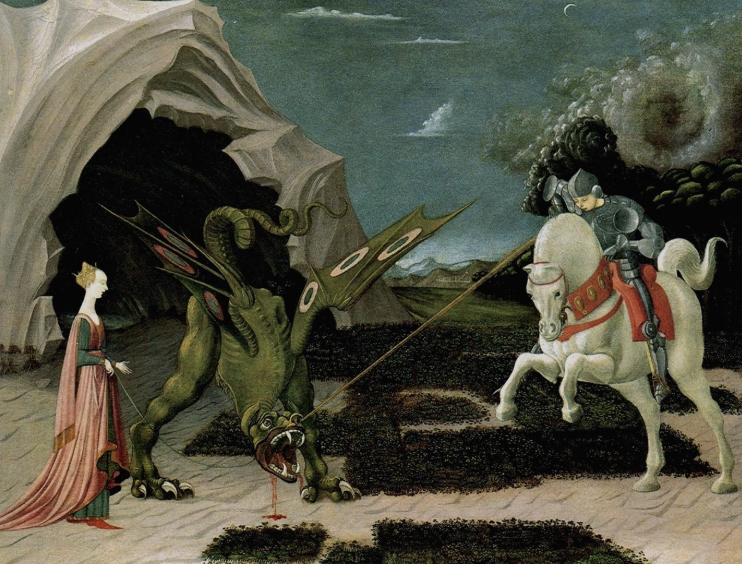
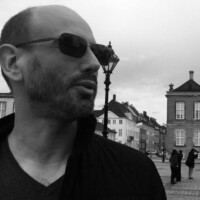



Comments (0)
Only supporting or founding members can comment on our articles.